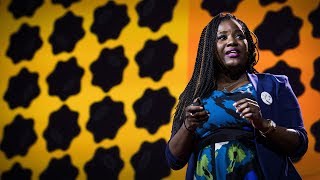(单词翻译:单击)
After decades of research and billions of dollars spent in clinical trials, we still have a problem with cancer drug delivery.
经过数十年的研究,花了数十亿美元在临床实验上,我们仍然无法解决癌症药物传递的问题。
We still give patients chemotherapy, which is so non-specific that even though it kills the cancer cells,
我们仍然让病人接受化疗,但化疗药物完全没有特异性,虽然能杀死癌症细胞,
it kind of kills the rest of your body, too.
它几乎会把身体其他部份也杀死了。
And yes, we have developed more selective drugs, but it's still a challenge to get them into the tumor,
是的,我们已经研发出选择性高的药物,但要把它们送到肿瘤所在仍是个挑战,
and they end up accumulating in the other organs as well or passing through your urine, which is a total waste.
最终它们也会累积在其他器官中,或是通过你的尿液,就完全浪费掉了。
And fields like mine have emerged where we try to encapsulate these drugs to protect them as they travel through the body.
于是就有我这种领域出现,我们尝试将这些药物包裹起来,让它们在通过身体时能受到保护。
But these modifications cause problems that we make more modifications to fix.
但这些改变会造成问题,我们还得再做更多的改变来解决。
So what I'm really trying to say is we need a better drug delivery system.
所以,我想说的是,我们需要更好的药物传递系统。
And I propose, rather than using solely human design, why not use nature's?
我提议,与其使用完全人为设计的系统,为何不用自然界的系统?
Immune cells are these versatile vehicles that travel throughout our body,
免疫细胞就是在我们体内移动的多功能运载工具,
patrolling for signs of disease and arriving at a wound mere minutes after injury.
它们四处巡逻寻找疾病征兆,也会在受伤后几分钟内就抵达伤口所在。
So I ask you guys: If immune cells are already traveling to places of injury or disease in our bodies, why not add an extra passenger?
所以,我想请问各位:如果免疫细胞本来就会移动到我们体内的伤处或疾病所在处,为何不多载个乘客呢?
Why not use immune cells to deliver drugs to cure some of our biggest problems in disease?
为什么不用免疫细胞来传递药物,来解决我们在疾病上的一些大问题?
I am a biomedical engineer, and I want to tell you guys a story
我是生物医学工程师,我想告诉各位一个故事,
about how I use immune cells to target one of the largest problems in cancer.
说明我如何用免疫细胞来解决癌症中最重大的问题。
Did you know that over 90 percent of cancer deaths can be attributed to its spread?
你们知道90%的癌症造成的死亡都是因为癌症转移所致的吗?
So if we can stop these cancer cells from going from the primary tumor to a distant site,
如果我们能阻止癌症细胞从主要肿瘤转移到较远的地方,
we can stop cancer right in its tracks and give people more of their lives back.
我们就能直接在路上阻止癌症移转,提高人们复原的机会。
To do this special mission, we decided to deliver a nanoparticle made of lipids,
为了进行这项特殊任务,我们决定要传递一个由脂质组成的纳米粒子,
which are the same materials that compose your cell membrane.
而脂质正是构成细胞膜的原料。
And we've added two special molecules.
我们又再加上了两个特殊的分子。
One is called e-selectin, which acts as a glue that binds the nanoparticle to the immune cell.
第一种是“e型选择素”,用来当作黏着剂,将纳米粒子和免疫细胞黏结在一起。
And the second one is called trail. Trail is a therapeutic drug that kills cancer cells but not normal cells.
第二种是TRAIL。TRAIL是一种治疗药物,只会杀死癌症细胞,不会杀死正常细胞。
Now, when you put both of these together, you have a mean killing machine on wheels.
把这两者结合起来,就有厉害可用的行动杀戮机器了。
To test this, we ran an experiment in a mouse.
为了测试它,我们在老鼠身上实验。
So what we did was we injected the nanoparticles, and they bound almost immediately to the immune cells in the bloodstream.
我们的做法是将纳米粒子注射进去,它们马上就和血液中的免疫细胞黏结在一起。
And then we injected the cancer cells to mimic a process through which cancer cells spread throughout our bodies.
接着,我们注入癌症细胞,来模仿癌症细胞在整个体内转移的过程。

And we found something very exciting. We found that in our treated group,
我们的发现很让人兴奋。我们发现,在实验组中,
over 75 percent of the cancer cells we initially injected were dead or dying, in comparison to only around 25 percent.
超过75%被注入的癌症细胞已经死亡或即将死亡,相较之下对照组只死了25%。
So just imagine: these fewer amount of cells were available to actually be able to spread to a different part of the body.
想象一下:只剩下少数的癌症细胞还能够转移到身体的其他地方。
And this is only after two hours of treatment.
并且这还只是治疗后两小时的成果。
Our results were amazing, and we had some pretty interesting press.
我们的结果很惊人,也得到一些有趣的媒体报道。
My favorite title was actually, "Sticky balls may stop the spread of cancer."
我最爱的标题是:“黏黏球有可能阻止癌症转移。”
I can't tell you just how smug my male colleagues were, knowing that their sticky balls might one day cure cancer.
我无法告诉各位,当我的男同事们知道有一天他们的黏黏球可能会治愈癌症时,他们有多么沾沾自喜。
But I can tell you they made some pretty, pretty, exciting, pretty ballsy t-shirts.
但我可以告诉各位,他们做了一些非常非常“有种”的T恤。
This was also my first experience talking to patients where they asked how soon our therapy would be available.
这也是我初次和病人谈话的经验,谈话中,他们问我这种疗法何时可以使用。
And I keep these stories with me to remind me of the importance of the science, the scientists and the patients.
我一直记着这些故事,来提醒我自己科学、科学家以及病人有多重要。
Now, our fast-acting results were pretty interesting, but we still had one lingering question:
我们的快速见效的结果十分有趣,但我们还有一个未解的问题:
Can our sticky balls, our particles actually attached to the immune cells, actually stop the spread of cancer?
我们的黏黏球,或粒子,能不能真的附着在免疫细胞上,真正阻止癌症转移?
So we went to our animal model, and we found three important parts.
所以,我们开始用动物模式,且有三项重要发现点。
Our primary tumors were smaller in our treated animals, there were fewer cells in circulation,
在接受治疗的动物体内,主要肿瘤变得比较小;循环中的癌症细胞数量也比较少;
and there was little to no tumor burden in the distant organs.
在远处器官上的肿瘤负荷比较低,甚至没有。
Now, this wasn't just a victory for us and our sticky balls.
这不只是对我们以及我们的黏黏球而言的一场胜仗。
This was also a victory to me in drug delivery, and it represents a paradigm shift, a revolution -- to go from just using drugs,
也是对我而言的一场胜仗,药物传递的胜仗,它代表的是典范转移,是革命--从只是使用药物、
just injecting them and hoping they go to the right places in the body,
只是注射药物,并希望它们能在体内到达对的地方,
to using immune cells as special delivery drivers in your body.
变成使用免疫细胞来扮演体内的快递司机。
For this example, we used two molecules, e-selectin and trail, but really, the possibility of drugs you can use are endless.
这个例子中,我们用了两个分子:e型选择素与TRAIL,但其实,你能使用的药物有着无尽的可能性。
And I talked about cancer, but where disease goes, so do immune cells.
我刚谈到的是癌症,但只要有疾病的地方,免疫细胞就会过去。
So this could be used for any disease.
所以这方法可以用在任何疾病上。
Imagine using immune cells to deliver crucial wound-healing agents after a spinal cord injury,
想象一下,在发生脊髓损伤之后,用免疫细胞来传递重要的伤口愈合药,
or using immune cells to deliver drugs past the blood-brain barrier to treat Parkinson's or Alzheimer's disease.
或是用免疫细胞来通过脑血管障壁以传递药物,来治疗帕金森氏症或阿兹海默症。
These are the ideas that excite me about science the most.
这些点子真的让我对科学感到兴奋。
And from where I stand, I see so much promise and opportunity. Thank you.
从我的角度来看,我看到了好多的希望与机会。谢谢。


